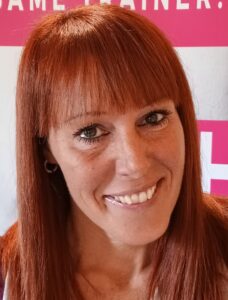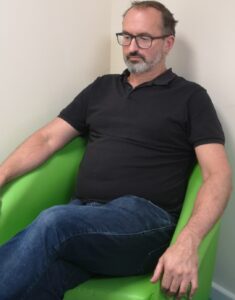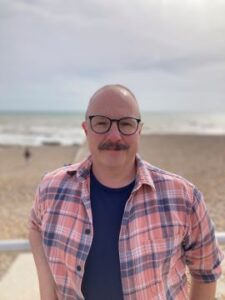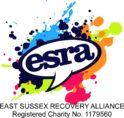Counselling provided by ESRA
Counselling sessions are offered to clients of ESRA by trainee counsellors. The term “trainee” is an interesting one, within the capacity of counselling, we enter a life of “training” as we are constantly learning.
All trainee counsellors will work under a specific “modality” or “theory” as a basis of their training programme.

Sarah: My chosen “modality” is Carl Rogers, the founder of “The Person Centred Approach” and it’s important that the clients I work with have a general understanding of how this theory impacts on the work we do together. The theory is “humanistic”. What that means is, it supports “ humanistic values”.
As a therapist it’s my job to enter into the lives of others; to see things from the client’s point of view. As I interact with my clients I am encouraged to empathise, to hear their story and remain non judgemental. Accepting my clients for who they are, regardless of how they present themselves in the here and the now. My role is to be mentally, emotionally and physically in tune with my clients so that they no longer need to deny, hide or repress what they feel themselves to be.
As I focus on truly understanding where my client sits within their own world, I endeavour to feel what they feel and have felt; see what they have seen and continue to see what they see. This is called “empathic understanding” and remains key to our work within the therapeutic alliance of client and counsellor.
As we work together, in partnership, we create behaviour change. As I apply the person centred approach to our work together, I reduce the “power-over” the client as much as possible and aim to maximise “the power-from- within” of both client and therapist and the “power-with” in the therapeutic relationship as a whole.
“Client centred therapy is the only approach that enshrines the client’s right to access healing without sacrificing their personal power. They are the expert, and the client-centred therapist goes “back to the client” for authority (Schmid,2004).” P.27 The Handbook of Person Centred Therapy and Mental Health.
Carl Rogers believed that humans have a deep wish to grow towards the truest, most accurate and optimal version of themselves, the function of the therapist is to facilitate this.
My work here at ESRA is an integral part of my studies as a trainee counsellor and my journey into my chosen career path of counselling. As students we have to secure 100 voluntary hours of client base work in order to qualify, which is fully supported and supervised. In my opinion, as a client of a trainee counsellor you are in the most equipped and safest hands as our work is nothing but 100% bubble wrapped!
I feel honoured and privileged to be an integral part of the ESRA team as they support this requirement within the remit of our training programme as trainee counsellors. As trainee’s, It gives us a fantastic opportunity to help and support those that need it most at no financial cost to the service user and the provider. ESRA offers their service users “open ended therapy” which again is not only unique but essential to the type of recovery programme required within this type of organisation. Open ended therapy means that, as trainee counsellors we will discuss with our clients when we feel it is the right time for therapy to end, rather than allocating clients a 6-8 week period of client based therapy.
For many of the clients at ESRA, this programme is the final piece in their recovery programme that can potentially make all the difference.

Gareth: My name is Gareth and I am one of the trainee counsellors at ESRA. I am in recovery myself and it is this that brought me to volunteer with ESRA. I offer person-centred counselling, allowing clients to talk about their thoughts and explore difficult feelings in a confidential, non-judgemental and empathetic environment.

Ben: Counselling, alongside other recovery activities, provides you the opportunity to get to know yourself better. My approach is to consider what relief you hoped to get from the addiction? What hurt or pain is at the centre of the addictive behaviours? How early development may impact your life and relationships now? What changes to behaviours and thoughts could help you in your recovery?
Whilst I will be alongside you in this journey, you have complete autonomy about what you share and we will work entirely at your own pace.
There are a variety of approaches to the way Counsellors work with their clients. I am training to be an Integrative Counsellor using the following therapeutic approaches: The Person Centred Approach, Psychodynamic and Cognitive Behavioural Therapy (CBT). You can find information on this here:
https://www.bacp.co.uk/about-therapy/types-of-therapy
I am absolutely committed to anti-discriminatory practice, to support all diversity, and I am fully LGBTQI+ affirmative.
